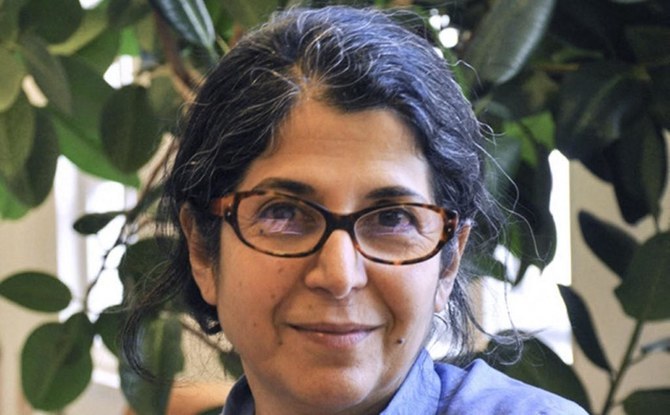DUBAI: Iran has released Iranian-French academic Fariba Adelkhah on furlough for five days, her lawyer told the Emtedad website on Tuesday, a day after Tehran and Washington wound up indirect talks in Vienna to revive a 2015 nuclear pact.
“We hope it (the furlough) will be extended,” Emtedad quoted Hojjat Kermani as saying.
Adelkhah, who is a resident of France and was arrested in 2019 while on a visit to Iran, was sentenced in 2020 to five years in prison on national security charges. She was moved to house arrest later, but in January was returned to jail.
Adelkab has denied the charges. France has called them “politically motivated” and repeatedly called for the release of Adelkhah, a researcher affiliated with Paris’s prestigious Sciences Po University.
Iran does not recognize dual nationality, saying the case is an Iranian domestic legal matter.
In March 2020, Iran released Adelkhah’s partner, French academic Roland Marchal, who was detained along with her, after France freed Iranian engineer Jalal Ruhollahnejad, detained over alleged violations of US sanctions against Tehran.
Iran releases Iranian-French academic Adelkhah on furlough
https://arab.news/486bp
Iran releases Iranian-French academic Adelkhah on furlough

- Adelkhah was sentenced in 2020 to five years in prison on national security charges
- She was moved to house arrest later, but in January was returned to jail
US mediating prisoner exchange talks between Damascus and Druze: source to AFP

- The talks aim to “get the authorities to release 61 civilians from Sweida who have been detained,” held by the National Guard
- Aid trucks have entered the province several times since July
BEIRUT: The United States is leading negotiations between a prominent Druze leader and the Syrian government to secure an exchange of prisoners held since sectarian clashes in a Druze-majority Syrian province last year, a source with knowledge of the matter told AFP Tuesday.
Thousands are estimated to have been killed when clashes erupted between Druze fighters and Sunni Bedouin tribes in the southern Sweida province in July.
The Syrian government in the capital Damascus said their forces intervened to stop the clashes, but witnesses and monitors accused them of siding with the Bedouin.
The Druze source, who requested anonymity, told AFP that “there are currently negotiations mediated by the United States between Sheikh Hikmat Al-Hijri and the Damascus government.”
The talks aim to “get the authorities to release 61 civilians from Sweida who have been detained... since the events of July, in exchange for 30 personnel of the interior and defense ministries” held by the National Guard, the armed group that operates under prominent Druze leader Hijri.
The Syrian Observatory for Human Rights said the fighting in Sweida left more than 2,000 people dead, including 789 Druze civilians who were “summarily executed by defense and interior ministry personnel.”
While a ceasefire was reached later in July, the situation remained tense and the province difficult to access.
Residents accuse Syrian authorities of imposing a siege on Sweida, which Damascus denies, and tens of thousands of people remain displaced from the violence.
Aid trucks have entered the province several times since July.
In August, dozens of small factions in Sweida announced they would join the National Guard, seeking to unify military efforts under Hijri, who is considered the Druze figure most hostile to Damascus.
Hijri has since demanded the creation of a separate region for his minority community, and has formed a de facto authority in Sweida city and its surrounding areas outside of the central government’s grasp.
Israel bombed Syria during the violence, striking the Syrian army headquarters and near the presidential palace, saying it was acting to defend the minority group.














